6 ways we can build dignity, agency & power amid the cost of living crisis
 In 2022, as we enter our 40th anniversary year, our vision remains the same: A UK free from poverty. We remain unrepentant in believing this should be the goal in one of the richest countries on the planet.
In 2022, as we enter our 40th anniversary year, our vision remains the same: A UK free from poverty. We remain unrepentant in believing this should be the goal in one of the richest countries on the planet.
By Niall Cooper, Church Action on Poverty director
19 January 2022
Whilst our vision remains the same, our goal for the coming year is to enable people and communities to be more resilient in the face of an impending cost of living catastrophe (see The Year of the Squeeze, Resolution Foundation).
In this blog, I will look at the economic context and challenges, then show why we can be optimistic, particularly if we work in partnership in communities. Finally, to show this is not wishful thinking, I set out six examples that can give us all grounds for confidence and hope.
Context: The coming cost of living catastrophe
The latest research from Joseph Rowntree Foundation published this week, shows that households on low incomes will be spending on average 18% of their income after housing costs on energy bills after April. For single adult households on low incomes this rises to a shocking 54%. (see Rising energy bills devastate poorest families, JRF). Lest we forget, this is on top of the ongoing impacts of the pandemic itself, and a decade of austerity, stagnant incomes and destitution (as documented by Coventry University’s Life on the Breadline research project we partnered with from 2018-2021).
Left to their own devices, individuals and families will struggle to cope. Neither the traditional welfare safety net nor increasingly threadbare local public services are likely to be able to offer much respite, beyond the most immediate crisis support – or a foodbank voucher. (see Leave No Family Behind Welfare Assistance during Covid-19).
Moving beyond traditional approaches to tackling poverty
Responses which focus on either securing significant increases in benefit levels from Government, or on ‘rescuing’ individuals and families from poverty are unlikely to deliver significant results, and arguably even less so in the current economic and political climate.
In fact, traditional approaches to tackling poverty, which effectively deny any agency or power to people and communities struggling against poverty themselves, may exacerbate the way in which people are ‘othered’ and seen only as part of a problem to be fixed (see ‘To count for nothing’: Poverty beyond the statistics).
Deep-seated and institutionalised prejudice on the basis of race, gender, disability and class is also frequently masked by ‘one-sized fits all’ approaches to tackling poverty.
The churches and the anti-poverty sector (within which we must also include Church Action on Poverty) need to recognise and actively re-dress our own biases, and take seriously the challenge of intersectionality if we wish to be seen as part of the solution rather than part of the problem in future. (see Intersectionality: revealing the realities of poverty and inequality in Scotland).
Signs of hope: radical thinking and resilient communities
In the face of this, radical voices are calling for a new social revolution, rekinding democracy or a shift towards a wellbeing economy, or circular economy.
As we also know afresh from the past 18 months, local communities are huge reservoirs of resilience, mutual support and goodwill (see Resilient communities). Faith communities, whilst not being the sole repository of resilience, are at the heart of this, holding precious assets of committed volunteers, community buildings, social networks and public trust (see Movement for recovery).

The task ahead: Reclaiming dignity agency and power together
In this context, Church Action on Poverty’s task for the next year and beyond is to focus on working with a wide array of partners to promote initiatives in which local people and communities struggling against poverty can come together, and take collective action to reclaim their own dignity, agency and power, in order to mitigate the impact of a further economic squeeze.
Here are six examples of what that looks like in action:
1: Your Local Pantry
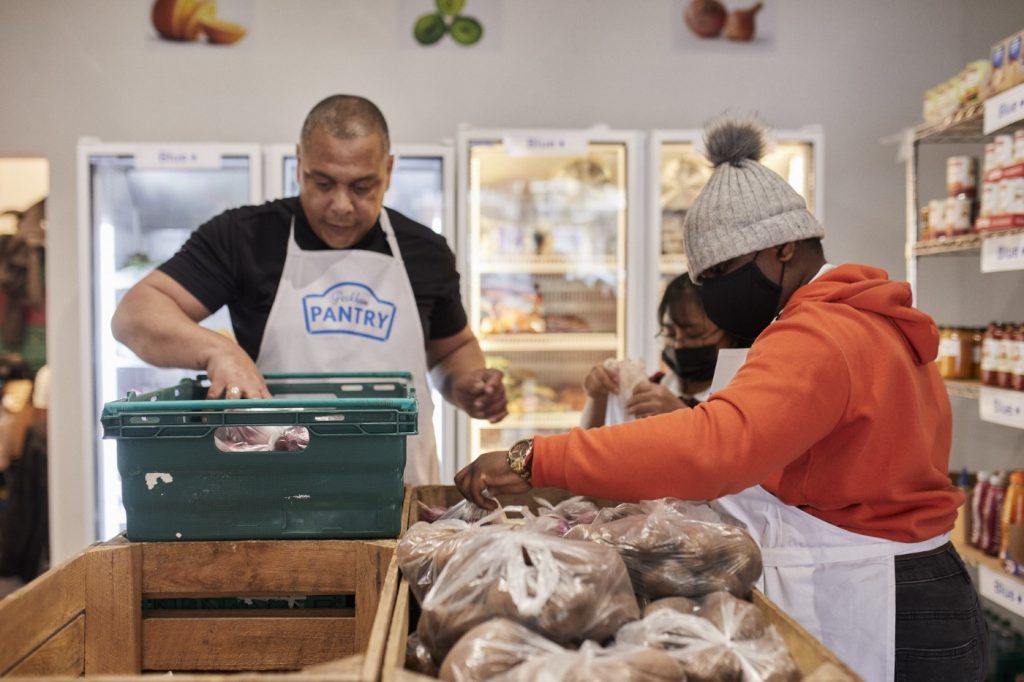
Local Pantries are ideally positioned at the forefront of a resilient community response.
The 70+ members of the Your Local Pantry network across the UK are a form of mutual aid. Each Pantry member can save up to £780 from their household bills each year – roughly balancing out the impact of the fuel price rise and tax increases slated for April on low income households.
In this way, joining Your Local Pantry is a preventative act – to stop household finances slipping further into the red over the coming months. On the positive side of the equation, Local Pantries also serve to boost a broad range of other household assets, including health, mental health, social connection, self-esteem, dignity and choice – and more broadly provide a locus for hope and optimism at neighbourhood level.
2: Self-Reliant Groups
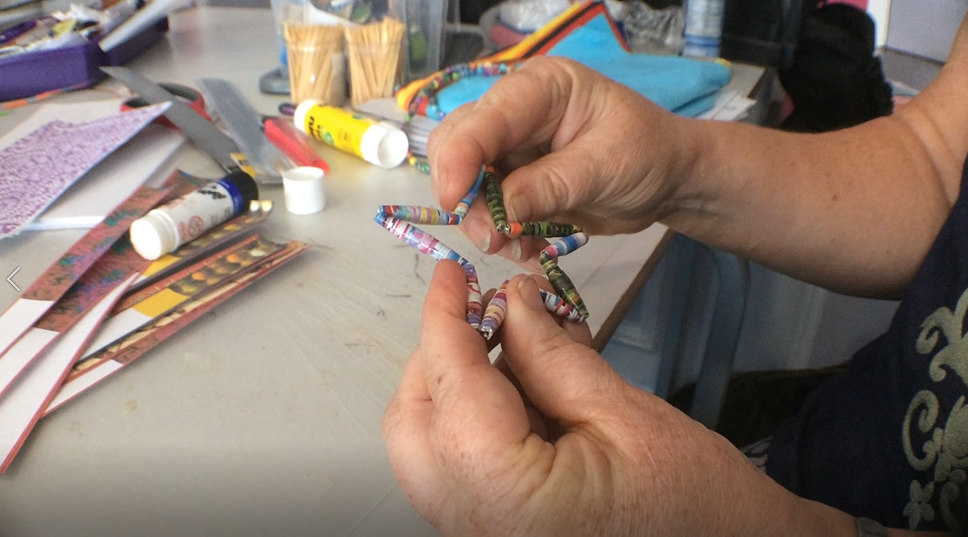
More modestly, we will continue to grow the Self-Reliant Groups movement with new or existing partners (including piloting SRGs within Local Pantries), as a way of promoting women’s empowerment and gender justice (80% of SRG members are women from low income, marginalised communities).
Joining a Self-Reliant Group is a highly effective way for highly excluded groups of people to build their self-confidence, social solidarity, dignity as well as the agency that comes from collectively earning even relatively modest sums of money.
3: Poverty Truth Commissions
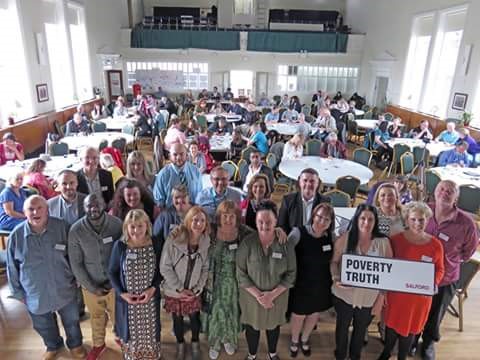
Identifying partners in one or two areas who are keen to develop proposals for local Poverty Truth Commissions, in conjunction with the Poverty Truth Network, will enable people struggling against poverty to constructively engage with key leaders in public and private institutions that continue to wield significant power at local level.
These powerholders regularly make critical decisions over the allocation of large public and private budgets (frequently running to hundreds of millions of pounds), workforces and services that impact the lives of local populations. Even ‘marginal gains’ or seemingly ‘small scale’ changes inspired by grassroots members of Poverty Truth Commissions can have significant and tangible benefits for large numbers of people struggling against poverty at town or city-wide level.
4: Speaking Truth To Power

Speaking truth to power will continue to be a vital task, to ensure the voices, stories, ideas and opinions of people struggling with poverty are heard and understood by decision makers, including those in the faith and voluntary sectors as well as politicians, public bodies, opinion formers, the media and ultimately the general public.
To this end, our new Speaking Truth to Power programme will be a key priority, drawing on proven methods developed over the past decades. This work will support a new generation of activists – including critically people struggling against poverty themselves – to have the skills and confidence to speak their own truth to power on the issues that matter most to them and their communities.
We will pilot this with work in a number of local areas, including where there is a critical mass of Pantries and Pantry members, as a means of exploring the potential for Your Local Pantry to become a broader member-led movement for broader social change at local and ultimately national level.
5: Challenge Poverty Week

We will continue to invest and grow Challenge Poverty Week as a key ‘mobilising moment’ for partners across the country to celebrate the positive work being undertaken within local communities and amplify the voices of people in poverty, whilst reminding power holders and the wider public of the need for a broader commitment to challenge poverty in the difficult years ahead.
6: Churches as agents of social transformation

Churches are ideally placed to play a key role within this work, but to do so requires an institutional, theological and cultural shift away from models of ‘service provision’. These models see people primarily through the lens of helplessness, haplessness, vulnerability or victimhood, triggering thoughts of rescue or saving. We need to move towards models in which churches are open to the possibility of people struggling against poverty exercising agency and leadership, as equal partners alongside clergy and (other) church members, (eg through the model of member-run Local Pantries).
It will also require investing in models of mission, leadership and discipleship which affirm the importance of social engagement and transformation (the missionary goal of transforming the unjust structures of society).
This is exemplified by the Church of Scotland’s Priority Areas programme and Faith in Community Scotland. Through our existing church partnerships and Church on the Margins programme, Church Action on Poverty can play a modest role in advocating for these new ways of working, and in challenging the institutional churches to invest in what the Church of Scotland recognised more than a decade ago to be ‘the Gospel priority.’
Building a social movement, a social revolution and a wellbeing society
Through all of this, Church Action on Poverty can play a catalytic role, working with partners to grow a radical social movement in which people and communities struggling against poverty are able to reclaim their dignity, agency and power.
In doing so, we can enable communities who are too often written off as ‘left behind’ to play a key role in a wider social revolution and transition towards a society focussed on the wellbeing of all its members.

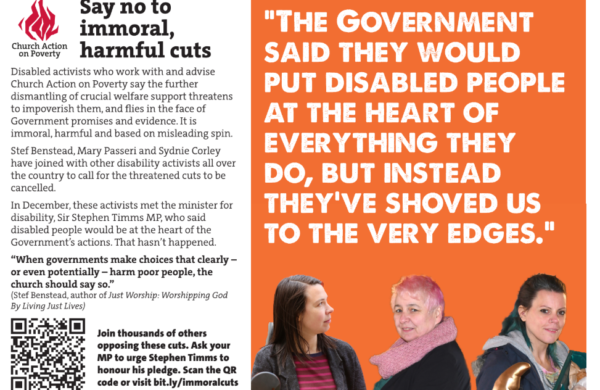
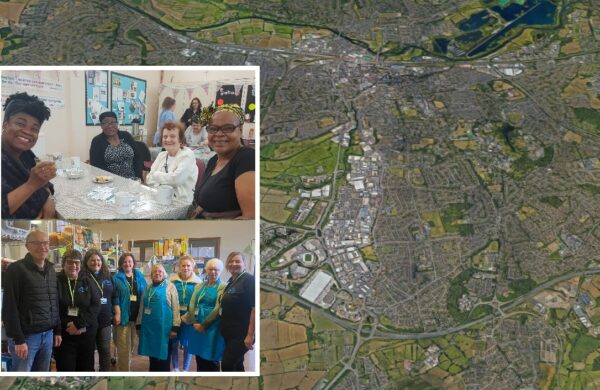
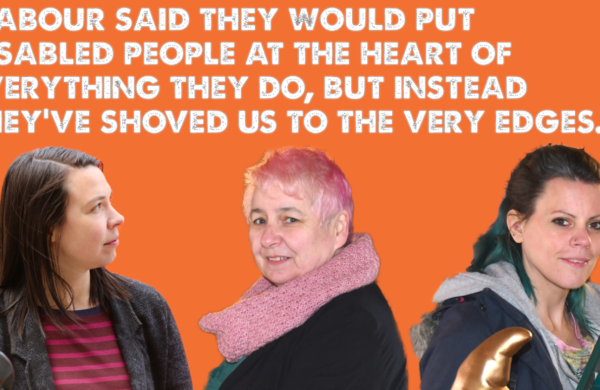
Comments (02)
Comments are closed.